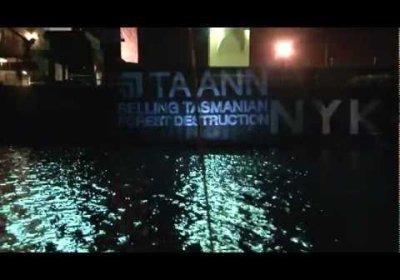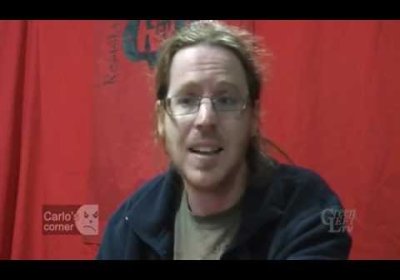922
Huon Valley Environment Centre last night participated in a peaceful action on the Hobart waterfront. Activists used a projector to place images and messages about Ta Ann on the side of a vessel that was in port loading veneer.
Green Left columnist Carlos Sands rants, raves, and is literally moved to tears by the arguments of defenders of Israel in his second outing on Green Left TV. And as 19 Palestine solidarity activists face court in Melbourne, he has some choice words for Max Brenner and the Murdoch media.
The University of Sydney Vice-Chancellor Michael Spence and the university Senate further displayed their “democratic” views on May 7 by sending riot police to break up protests by more than 500 students and staff.
- Previous page
- Page 3
- Next page











